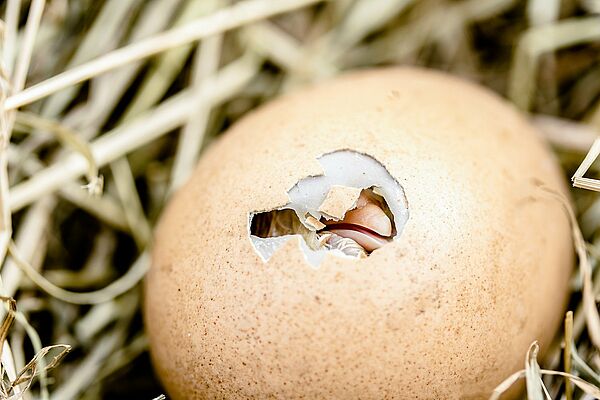In Germany, just under 19.5 billion eggs are consumed per year, with almost all eggs on the market coming from specialized laying hen farms. In 2018, there were a total of 1,897 farms in Germany with 3,000 or more places to keep hens. East Westphalia-Lippe is also characterized by intensive agricultural use and is home to both large and small, family-run hatcheries. It's a business that also has its downsides, because every year, according to the German Federal Ministry of Agriculture, 45 million chicks in Germany are shredded or gassed because they are the wrong sex. Raising male animals is not economical because they produce less meat and cannot lay eggs. For years, the poultry industry has therefore been looking for a way to determine the sex in the egg so that male chicks do not hatch in the first place.
Scientists at the Institute for Industrial Information Technology (inIT) at the OWL University of Applied Sciences, in collaboration with Coburg University of Applied Sciences, recently filed a patent application for a method that can determine the sex of the chick even before it hatches. Professor Helene Dörksen from inIT explains how this works: "In the procedure, a small hole, about 2mm in size, is drilled into the egg shell without damaging the egg skin. A laser is then shone into the egg and the light reflected back is recorded. There are usable differences between chick sexes in this process. From a scientific point of view, this is fluorescence spectroscopy."
A prototype based on the method is to be developed as soon as possible into a market-ready machine, which is to be used by farms throughout the country. Although the acquisition costs of €45,000 are relatively high, Professor Helene Dörksen emphasizes that not only large farms need to benefit, but that an acquisition is also worthwhile for smaller hatcheries. "The machine that performs the sexing test is very mobile and robust. Several small farms could therefore share the purchase costs and pass the machine on in turn. This is absolutely no problem and no great effort needs to be put into it. In addition, the device requires little space and is very easy to operate. We have so many small farms here in the Lippe district that could use it to act in an even more animal welfare-oriented way. A simple time/exchange schedule would suffice to jointly reap the benefits of the device," says Professor Dörksen, describing the advantages.
Sebastian Horn, a young farmer from Hörste, has also already recognized the advantages and finds the method extremely interesting. "If the chicks are not discarded in a technically correct way, then it is better to sort them out while they are still in the egg," he agrees. Other companies from the business world have also already expressed interest in working together.


